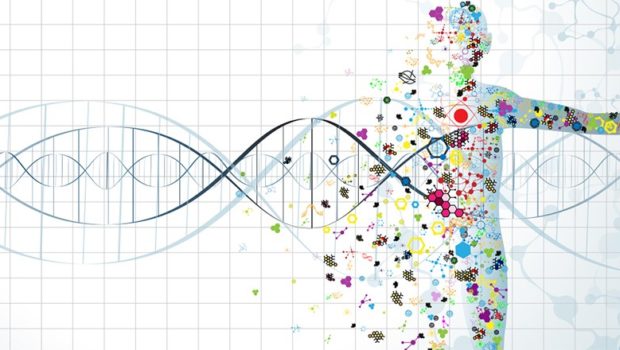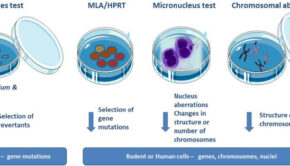Key things to know about precision medicine
Precision medicine refers to the way health care providers may plan and provide specific care for the patients, based on your genes or even the genes in your cancer cells. This is sometimes known as personalized care or personalized medicine. Remember that precision medicine can look at how a particular gene mutation or gene change may affect your risk of getting a specific cancer or how your genes or the genes in your cancer cells may affect treatment.
The precision medicine approach utilizes information derived from genetic tests to assist physicians create a plan that may involve specific recommendations. In most cases, precision medicine may help many people make decisions about earlier screening tests, healthy habits, and other preventive measures if you are at risk for a specific health condition. This article discusses key things to know about precision medicine.
Understanding precision medicine
It’s worth noting that many health care providers may not use the words personalized medicine or precision medicine. Instead, they can talk to you about DNA, genomic, genetic, or molecular testing. They may even discuss getting a genetic profile or looking for biomarkers. These are just ways physicians and other health care providers may utilize a precision medicine approach while planning your care.
The Precision Medicine Initiative suggests that precision medicine is only an emerging approach that can be used for treating and preventing diseases. This approach considers variability in genes, environment, and lifestyle.
This method can allow physicians and researchers to correctly predict the right treatment and prevention strategies for a specific disease and how they will work in some people. This is different from the one-size-fits-all strategy, which uses a standard approach to treat and prevent a disease for an average individual, with less emphasis on the difference between people.
Precision medicine is a relatively new term, but the concept has been in the healthcare system for many years. For instance, if you need a blood transfusion, the health care providers don’t give you blood from any selected donor. Instead, your blood type is matched to the donor’s blood type to minimize the risk of complications. There are many good examples from various areas of medicine, though the precision medicine’s role in day-to-day activities of healthcare are quite limited.
As mentioned earlier, some people use the terms personalized medicine and precision medicine interchangeably. The truth is that personalized medicine happens to be an older term that has a similar meaning to precision medicine. But there were some concerns that the term personalized might be misinterpreted to mean the treatment and prevention that are developed for specific individuals.
With life sciences strategy consulting, the emphasis tends to be to identify the best approach that can be effective on particular patients depending on environment, genetic, and lifestyle factors. While some people prefer the term precision medicine, others use precision medicine and personalized medicine interchangeably.
Pharmacogenomics is considered to be part of precision medicine. You need to know that pharmacogenomics is a field that studies how genes can affect your response to specific drugs. This field combines the science of drugs called pharmacology and the study of genes and how they function, also known as genomics to develop safe and effective medication and doses that are customized to variations in your genes.
The benefits and challenges of precision medicine
Precision medicine gives a good promise for improving various aspects of health and healthcare. Quite soon, these benefits will be apparent because there are several ongoing research programs and new approaches and tools are being developed. Other benefits may come from long-term research and can take years to be realized.
For example, there is a long-term research attempt called the Precision Medicine Initiative that involves the National Institutes of Health and several other research centers. Their goal is to understand how an individual’s environment, lifestyle, and genetics can assist to determine the right approach to treat or prevent disease.
There are short and long-term goals for the Precision Medicine Initiative. The short-term goals consider expanding precision medicine in the cancer research area. Therefore, researchers want to use their knowledge in the biology of cancer and genetics to uncover more effective treatments for a variety of forms of this health condition. The long-term goals focus on getting precision medicine to other areas of health and healthcare but at a larger scale.
Precision medicine is a relatively new and growing field. As a result, there are many technologies that are yet to be developed to satisfy the Precision Medicine Initiative’s goals. Many of these technologies are still in their stages of development or they are yet to be developed.
The Precision Medicine Initiative has also to handle several social, ethical, and legal issues. It will be important to find different ways to protect the privacy of the participants and confidentiality of the health information. Above all, participants will need to know the benefits and risks of participating in this research, meaning researchers must develop a good informed consent process.
Another issue is the cost of the precision medicine. It’s worth noting that the Precision Medicine Initiative may cost tons of dollars, and may require funding approval for many years from the authorities.
Technologies like sequencing huge amounts of DNA can be expensive to carry out. Besides, medication that is developed to target an individual’s molecular or genetic properties are going to be expensive. There is also going to be a problem when it comes to reimbursement from third-party payers like private insurance companies for these personalized drugs.
However, if precision medicine approaches will become part of standard healthcare, then physicians and other healthcare providers must know more about biochemistry and molecular genetics. So they need to increasingly find themselves required to understand the genetic tests’ results, understand how this information can be relevant to prevention or treatment approaches, and transfer this knowledge to their patients.
As you can see, precision medicine is quite useful when it comes to prevention and treatment of diseases. The good news is that there are several research firms out there that can help your organization to implement a successful precision medicine approach.












![How Much Influence Does Crypto Have on the World Today? [Infographic]](https://technofaq.org/wp-content/uploads/2019/11/How-crypto-is-disrupting-financial-ecosystem-150x150.png)




